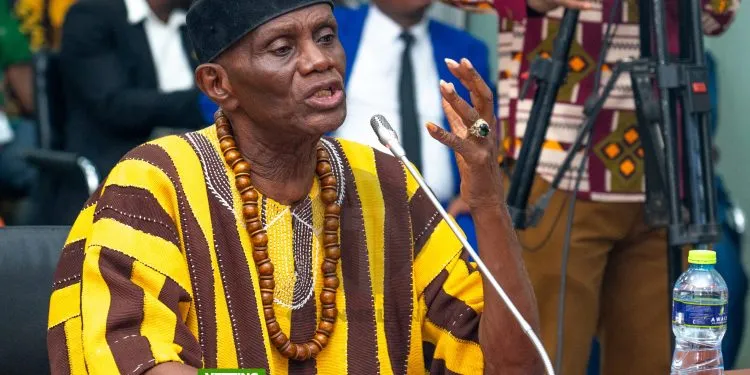The vetting of John Kwadwo Gyapong for the position of Regional Minister-Designate for the Oti Region in January 2025 brought to the fore a significant discussion on the interplay of age, experience, and political leadership. A committee member questioned Gyapong’s continued pursuit of influential positions at the age of 74, a father of ten, and with a distinguished career already encompassing three terms in parliament, regional chairmanships for the NDC in both the Oti and Volta regions, and a constituency chairmanship. The question, while perhaps unconventional, touched upon a broader societal debate about intergenerational leadership transitions and the perceived optimal age for political involvement. It challenged the nominee to justify his continued engagement in active politics, seemingly suggesting a time for retirement and the passing of the mantle to a younger generation.
Gyapong’s response, however, provided a compelling counter-narrative, emphasizing the value of experience and continued service. He skillfully drew a parallel to President Nana Akufo-Addo’s tenure, which extended well into his seventies, effectively neutralizing the age argument. By referencing a widely accepted example of leadership at an advanced age, Gyapong established a precedent and implicitly questioned the double standard that might be applied to him. He deftly turned the focus away from his age and towards his capacity and willingness to serve, arguing that if the nation had accepted a president in his seventies, there was no logical reason to preclude him from serving as a regional minister.
Furthermore, Gyapong underscored his deep-rooted commitment to the NDC, highlighting his status as a founding member and his decades of service to the party’s growth. This historical connection served to emphasize his loyalty and dedication, framing his continued involvement not as a personal ambition but as a commitment to a cause he helped establish. He portrayed himself as a vital link to the party’s origins and a custodian of its values, implying that his experience offered a unique perspective and understanding of the NDC’s trajectory. His argument suggested that his continued presence was not about clinging to power, but about providing invaluable guidance and continuity during a period he framed as “critical times.”
Gyapong’s response also tackled the implicit suggestion that younger individuals were inherently better suited for leadership roles. He acknowledged the importance of fresh perspectives and energy that younger generations bring, while simultaneously emphasizing the complementary value of experience and wisdom accumulated over years of political engagement. He positioned himself not as an obstacle to the next generation, but as a valuable resource, offering mentorship and guidance. He implicitly argued that effective governance requires a balance between the dynamism of youth and the seasoned judgment of experienced leaders, creating a symbiotic relationship where both contribute to the overall success of the party and the nation.
He strategically emphasized his “expertise” and the “benefit” he could provide to both the NDC and Ghana, framing his continued involvement as a selfless act of service. By focusing on the positive contributions he believed he could still make, he shifted the conversation away from his age and towards his potential impact. He presented his continued service not as a matter of personal ambition, but as a response to a perceived need for his specific skills and experience within the party and the wider political landscape. His declaration of unfinished work and unwavering commitment to Ghana’s development effectively countered the notion that he should step aside and make way for younger individuals.
In essence, Gyapong’s response during his vetting transformed a potentially challenging question about his age into an opportunity to articulate a powerful argument for the continued relevance and value of experienced leadership. He effectively countered the ageist undertones of the question by referencing established precedents, highlighting his enduring commitment to his party and country, and emphasizing the complementary nature of experience and youth in effective governance. He positioned himself not as a relic of the past, but as a valuable asset, capable of contributing significantly to both the NDC and Ghana’s future, demonstrating the ongoing relevance of seasoned politicians in a dynamic political landscape.














